Best substitute for almond flour | How to replace in baking and cooking
Almond flour is one of the most popular baking flours, especially for gluten-free and health-based cooking.
If you’ve run out of almond flour, or you need to replace almond flour with something else, there are some very tasty and workable alternatives.
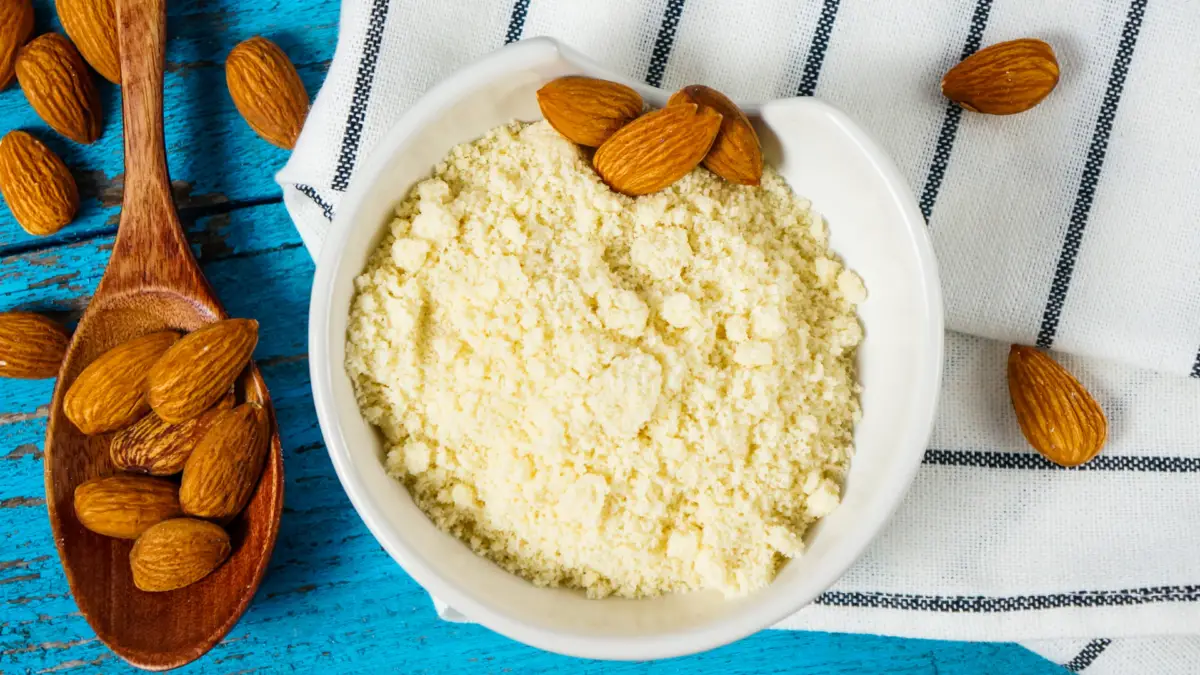
I’ve put together a long list of possible alternatives to almond flour. These include gluten-free options as well as affordable and easily accessible options.
I’ve also included some tips on the ratio for substituting almond flour with alternative flours.
The best substitute for almond flour is almond meal flour because the flavor is almost the same. It has a slightly different consistency, so if you are looking for a more finely ground alternative, either sunflower seed flour or cashew flour are great almond flour replacements.
But there are several others that work very well too, including pumpkin seed flour if you want to make macarons, plantain flour, flaxseed flour, and cassava flour, as the ratio for substitution for all of these is 1:1.
But first, let’s see what we need to think about when we want to replace almond flour in a recipe.

Check out our new cookbook
Bitemybun's family recipes with complete meal planner and recipe guide.
Try it out for free with Kindle Unlimited:
Read for freeIn this post we'll cover:
- 1 Top tips when using an almond flour substitute in a recipe
- 2 Best gluten-free almond flour substitutes
- 2.1 Almond meal: best substitute for almond flour
- 2.2 Sunflower seed flour
- 2.3 Pumpkin seed flour: best substitute for almond flour in macarons
- 2.4 Plantain flour: best nut-free almond flour substitute
- 2.5 Flaxseed flour: best healthy substitute for almond flour
- 2.6 Lupin flour: best keto substitute for almond flour
- 2.7 Cassava flour
- 2.8 Oat flour
- 2.9 Chickpea flour
- 3 Best nut flour substitutes for almond flour
- 4 Affordable and easy alternatives to almond flour
- 5 Not recommended: Don’t try to substitute these flours for almond flour
- 6 Takeaway
Top tips when using an almond flour substitute in a recipe
Almond flour is made from finely ground, peeled, raw almonds.
It is high in healthy fats and, when used in baked goods, gives them a moist and nutty texture. It is also lower in carbohydrates compared to wheat flour.
If you are looking for an almond flour substitute, you need to be aware that most flours perform differently, especially when it comes to baking.
Many almond flour-based recipes use a lot of eggs in order to bind the ingredients and give the baked goods more structure.
When using an almond flour substitute, you may need to reduce the number of eggs in the recipe.
Also remember, nut flours absorb liquids differently and have no gluten, so the ratio of wet to dry ingredients may need to change depending on the recipe.
This often means you can’t simply swap the same quantity of almond flour for an alternative flour.
So if a recipe calls for 1 cup of almond flour, this doesn’t mean you can simply substitute with 1 cup of rice flour.
There are specific ways of working out how much alternative flour you need in order to create a successful recipe.
Best gluten-free almond flour substitutes
Let’s start with some of the best gluten-free alternatives to almond flour.
Almond meal: best substitute for almond flour
If you want to ensure you get the closest taste to the original recipe, then almond meal is the obvious choice for an almond flour replacement.
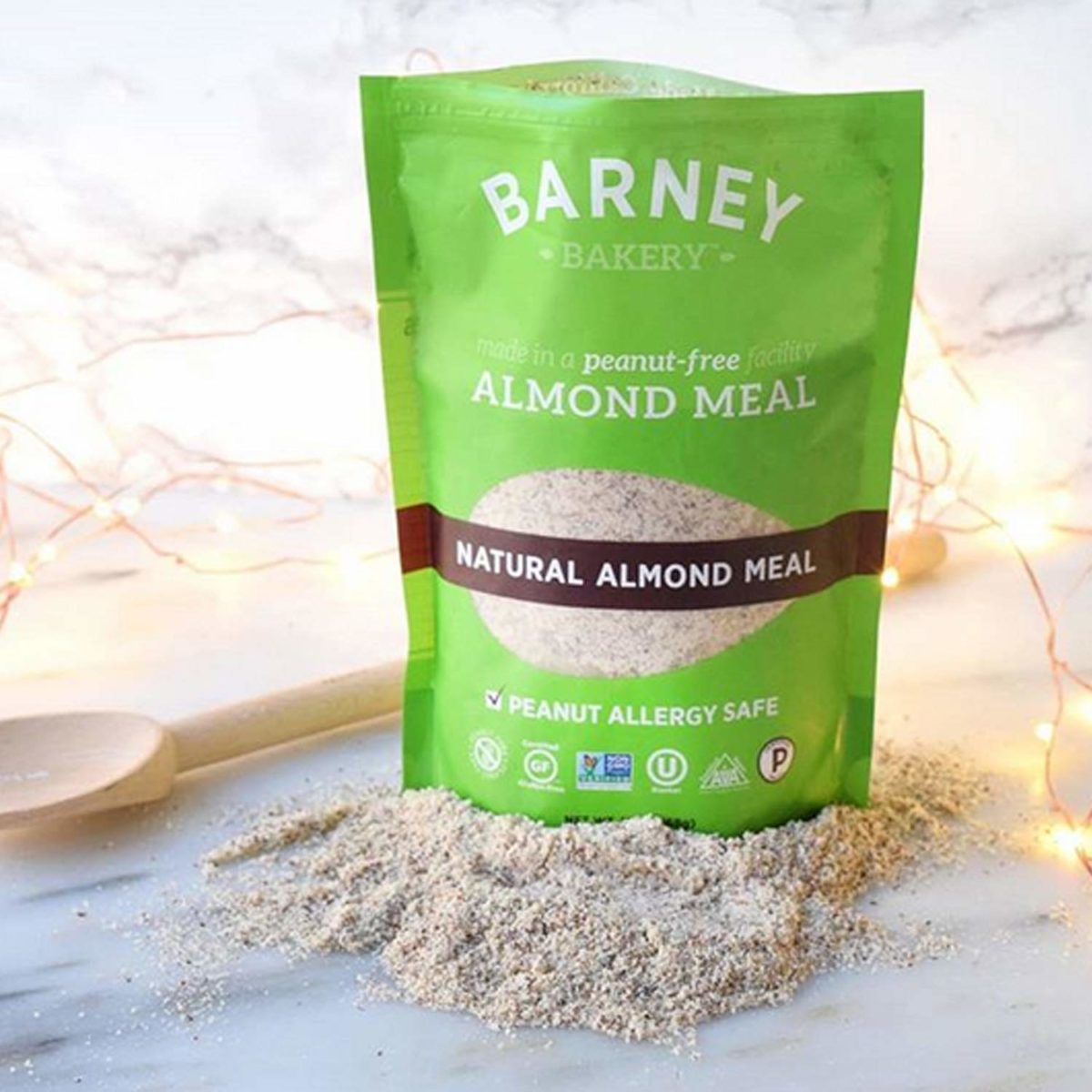
Almond meal is made from ground almonds but is coarser than almond flour. It is basically almond flour one step before it becomes flour.
Although it is coarser than almond flour it will not affect the overall texture of most recipes.
But it is not recommended if you are baking a light and fluffy cake or delicate macarons. It’s great for cupcakes, cookies, and bread.
Substitute almond flour for almond meal in an equal 1:1 exchange.
Sunflower seed flour
Sunflower seed flour is a very popular substitute for almond flour because it has a very similar consistency and reacts in a similar way when mixed with other ingredients.
It is ideal for those with nut allergies or for those following the paleo or keto diet.

You can substitute almond flour for sunflower seed flour on a 1:1 ratio but you may need to halve the quantity of baking soda in the recipe.
The chlorophyll in sunflower seeds may react with the baking soda and cause baked goods to have a green tinge.
To avoid this, add a tablespoon of lemon juice or apple cider vinegar to the batter before baking, or a pinch of cream of tartar.
Pumpkin seed flour: best substitute for almond flour in macarons
Pumpkin seed flour is made from finely ground pumpkin seeds.
This gluten free flour is full of essential amino acids and is a great alternative to almond flour.

It has a delicate flavor and can be used in both sweet and savory dishes.
It is the substitute flour of choice for making macarons. Substitute on a 1:1 ratio.
If you have a hard time finding pumpkin seed flour, know that you can make it yourself by finely grinding pumpkin seeds in a food processor or spice grinder.
Ysabel here shows you exactly how to make macarons with pumpkin seed flour instead of almond flour (and they are not green!):
Plantain flour: best nut-free almond flour substitute
Plantain flour is made by drying out unripe plantains and grinding them into a fine powder.
As a substitute for almond flour, it is a good option for those with food sensitivities like nut allergies.
It is easily digested and contains high amounts of resistant starch.
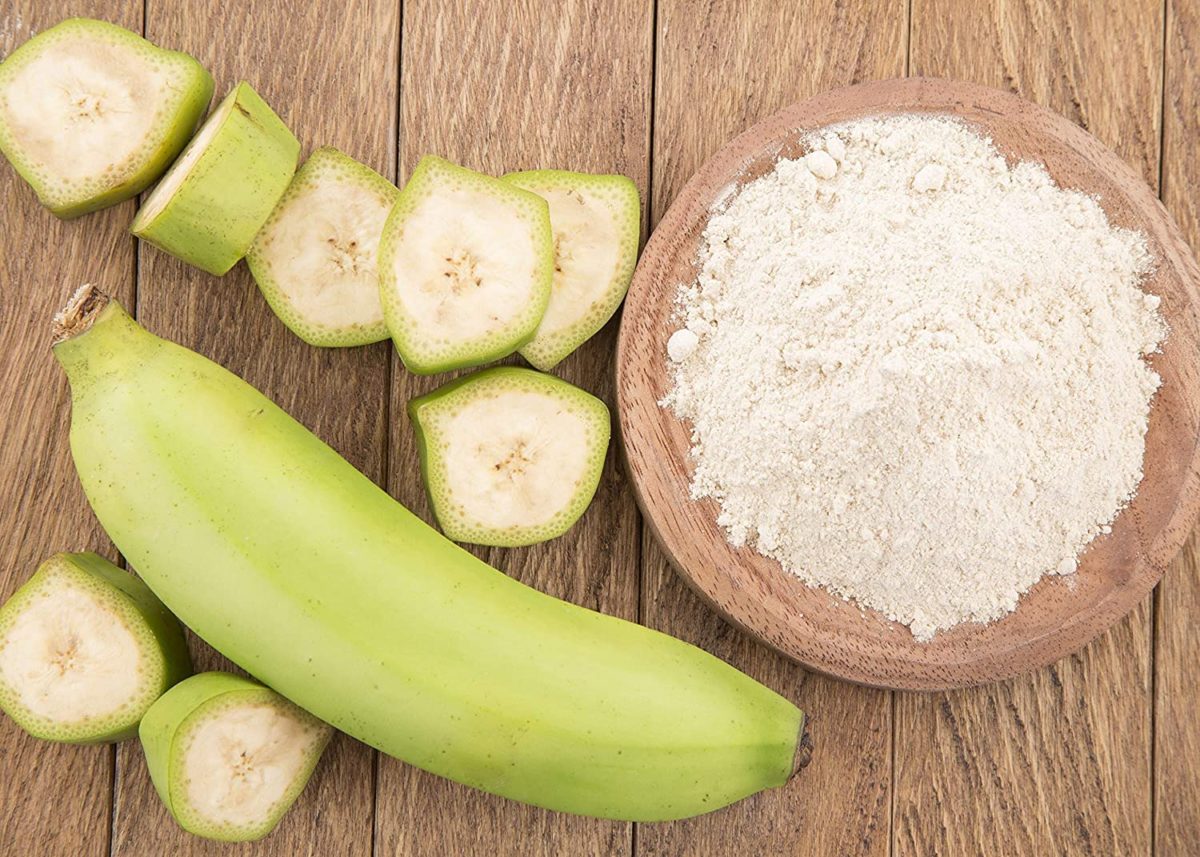
Plantains are similar to bananas but have a more neutral flavor which makes them ideal for making flour.
Plantain flour is excellent for baking pastries, bread, and pancakes.
Bear in mind though, that because it absorbs more moisture than almond flour, you may need to increase the amount of liquid in your recipes.
It can be substituted on a 1:1 ratio.
The best way to use flour in a recipe is to run it through a quality flour sifter first
Flaxseed flour: best healthy substitute for almond flour
Flaxseed flour (sometimes called linseed) makes an excellent gluten-free almond flour substitute because it mimics the good qualities of gluten in baking.
It adds moisture and softness to baked goods and it also acts as an excellent binding agent.
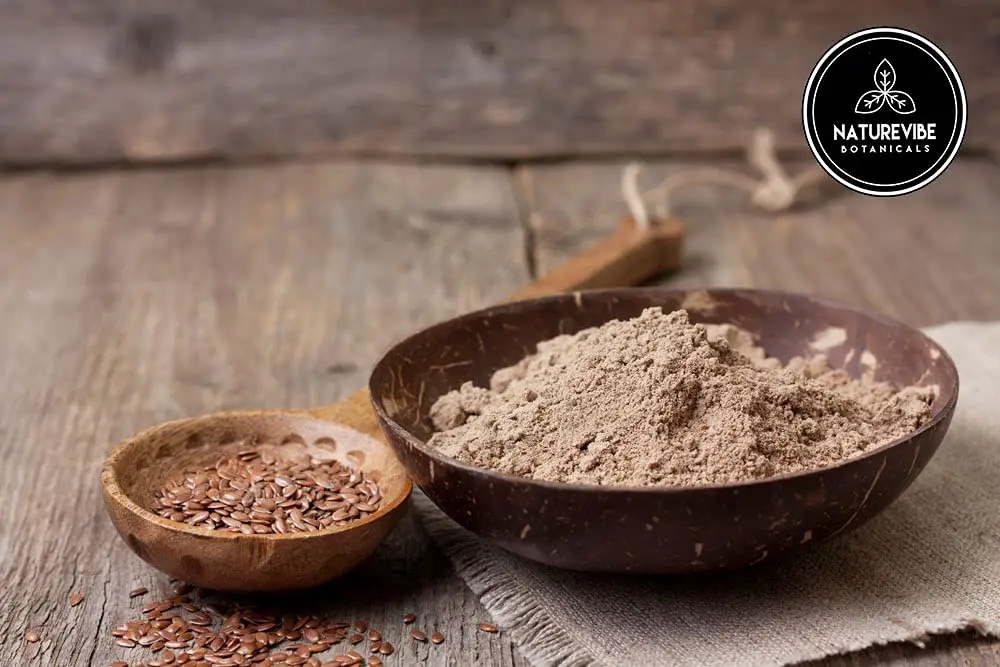
Flaxseed flour has a pleasant nutty flavor and is higher in carbohydrates than almond flour.
Flaxseed has the health benefits that it is high in fiber and omega-3 fatty acids, as well as phytochemicals called lignans, which have been consistently associated with lowering the risk of cardiovascular disease.
It is easy to make your own, fresh, flaxseed flour by grinding up the seeds in a blender.
It is best to store the flour in the refrigerator as it turns rancid quickly because of the high-fat content.
This is another one that can be substituted on a 1:1 ratio.
Lupin flour: best keto substitute for almond flour
Lupin flour is a great substitute for almond flour if you’re following a keto diet, as it is relatively high in protein and fiber and low in starch so it won’t spike your blood sugar. It’s also low in fat and as a bonus, it’s gluten free.
While strict keto diets don’t include legumes, most people agree that because lupin flour doesn’t affect your blood sugar, it is acceptable. Some dieters even add it to their health shakes to increase their protein intake.
Made from dried and ground sweet lupin beans, lupin flour does have quite a distinctive, bitter taste, so it should be combined with a keto-friendly sweetener (stevia or erythritol) if you’re using it in baking.
If you’re making a savory dish like pizza or pasta, make sure you add strong seasonings and tasty keto-friendly sauces to help mask the flavor of the flour.
It’s important to note that lupin beans are legumes, like peanuts and soybeans, so people with nut or soy allergies should avoid lupin flour.
You can substitute lupin flour for almond flour in a 1:1 ratio.
Many people also like to use a 50/50 split. So, if a recipe calls for a cup of almond flour, they will use half a cup of lupin flour and half a cup of almond flour.
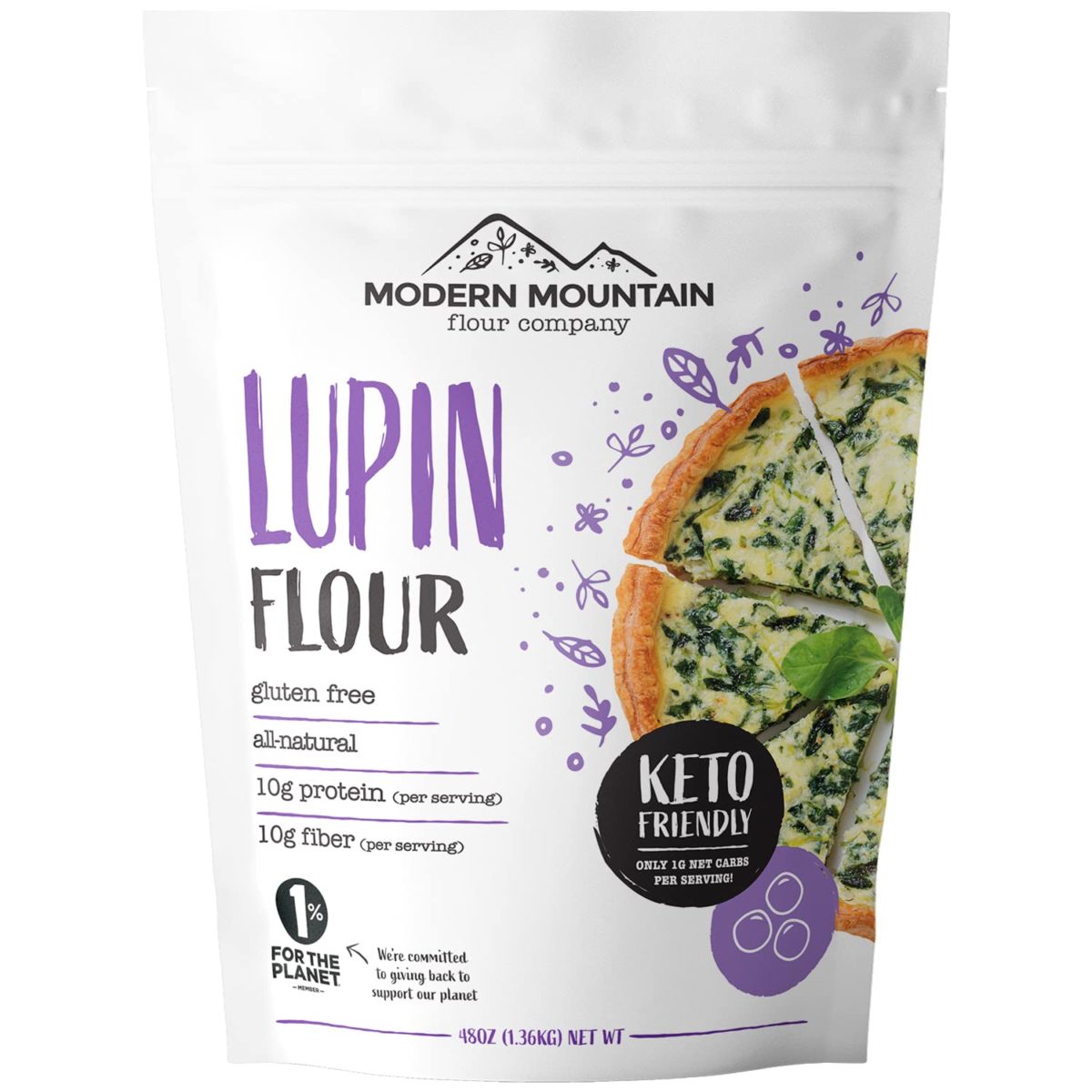
Cassava flour
Made from the cassava root, cassava flour is soft and powdery and very similar to wheat flour.
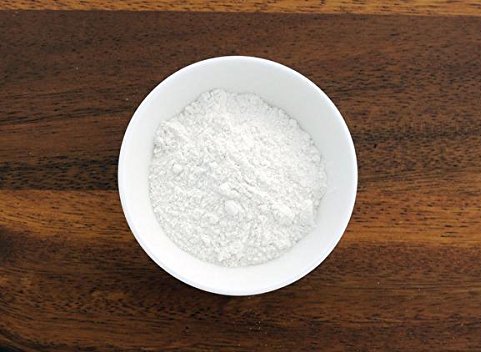
It is an excellent alternative to almond flour and has an earthy, nutty flavor that enhances the taste of baked goods.
In most recipes, you can substitute it at a 1:1 ratio, but some users feel that, because of its high absorption quality, you should use a little less cassava flour than the 1:1 ratio.
Also read: What is Tapioca? Cassava pearls & it’s uses
Oat flour
Oats are naturally gluten free and oat flour is lighter than almond flour which makes it good for baking.
It is higher in carbohydrates than almond flour but lower in calories and fat.
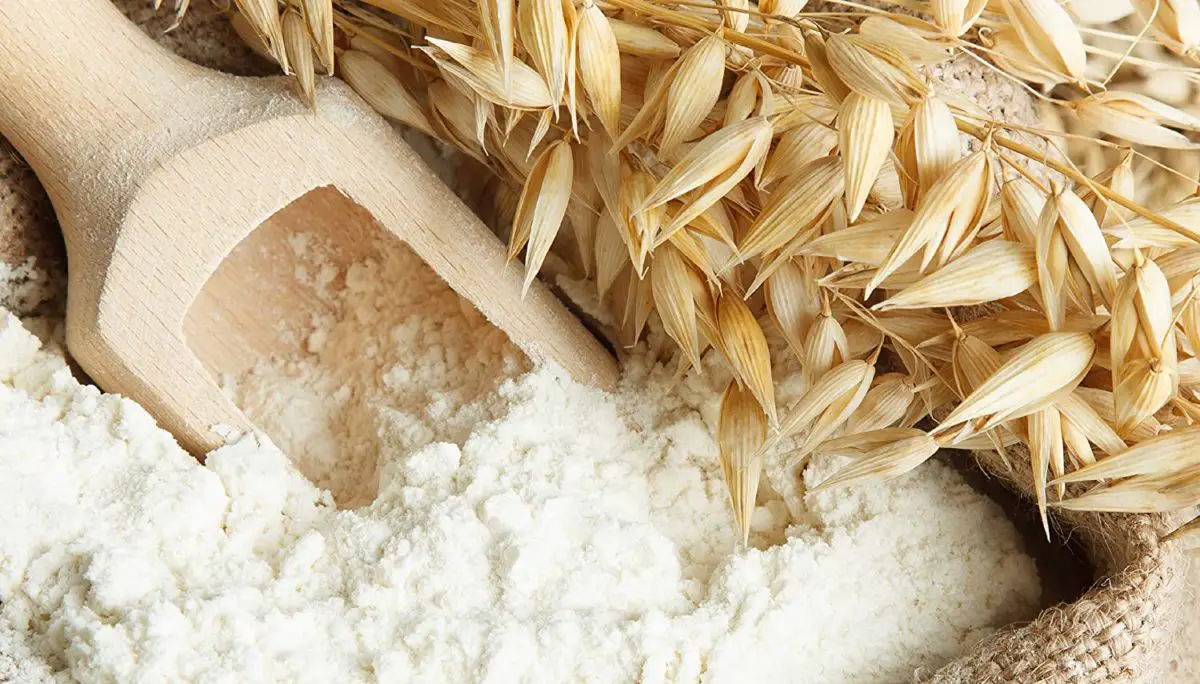
Oat flour can be made at home by blending the oats in a high-powered blender until a fine powder is formed.
One cup of oats will make about ¾ cup of oat flour. And you can substitute oat flour for almond flour on a 1:1 ratio.
Chickpea flour
Chickpea flour is quite similar in texture to almond flour, but the flavor of chickpea flour is more delicate.
This should not make much difference to your final product, which makes it a great possible replacement for almond flour.
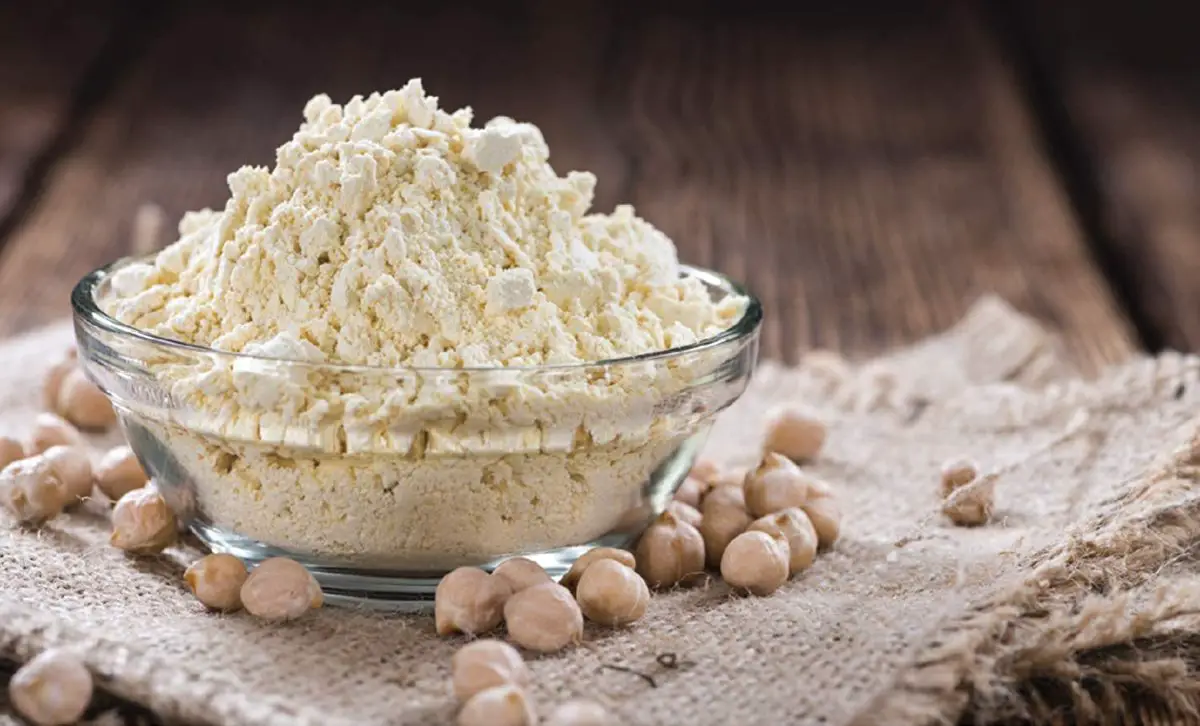
Chickpea flour comes from the garbanzo bean and is lower in calories and fat than almond, coconut and even quinoa flour.
Like quinoa flour, chickpea flour reacts much like regular gluten-containing flours as it is less dense than some other types of gluten-free flours.
Replace 1 cup of almond flour with ¾ cup chickpea flour.
To make a complete protein source, blend chickpea flour with rice flour in baked goods.
Best nut flour substitutes for almond flour
You can replace almond flour with other nut flours like cashew, macadamia, pecan or hazelnut flour.
The benefit of this is that these flours offer a similar texture and fat content and so recipes should not need to be altered much.
Also, because nuts are all higher in fats and proteins and lower in carbohydrates than wheat or oat flour, they are suitable for keto and low-carb diets.
I’ve gone into a little more detail about these nut flour alternatives below.
Cashew flour
Cashews are naturally sweet and are ideal to use in baking.
Cashew flour is an ideal replacement for almond flour – it differs very little from almond flour in both taste and texture.
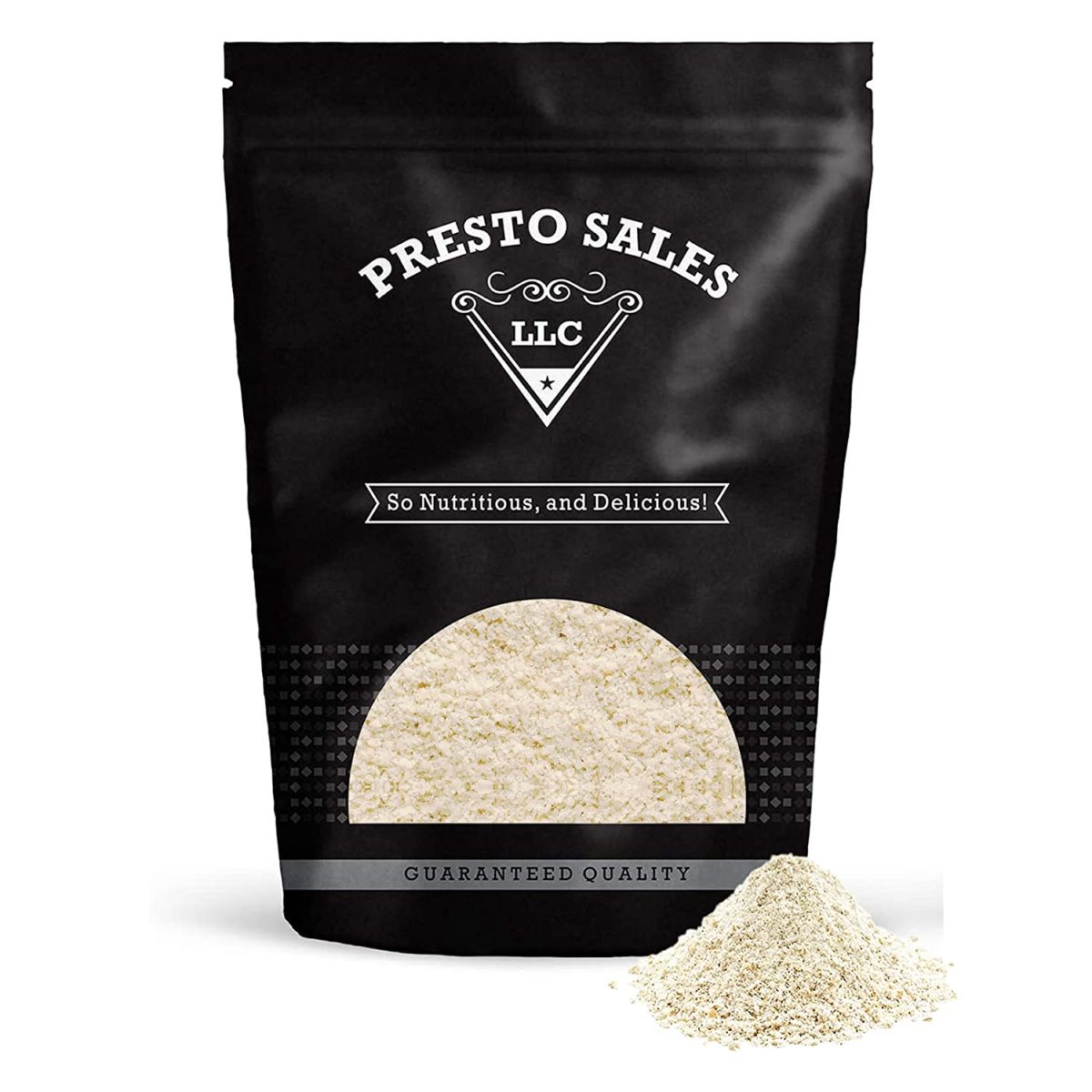
Cashew flour gives baked goods a lovely rich and creamy flavor. It can also be used as an alternative to breadcrumbs.
It is an easy flour to make at home. Simply blend cashews until they form a fine powder.
Be careful not to over blend, otherwise you will end up with cashew butter!
Substitution ratio is 1:1.
Macadamia flour
You can use macadamia flour as a direct substitute for almond flour. The results are very similar to products made using almond flour.
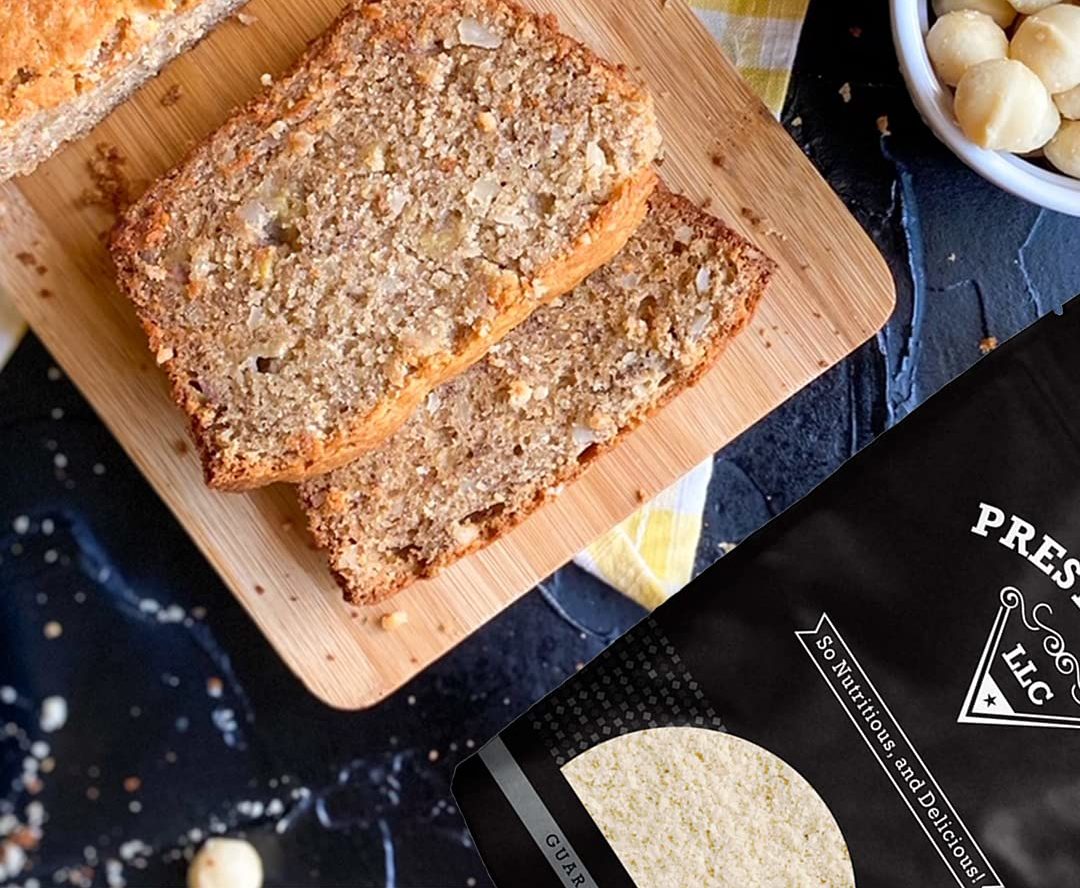
This coarsely ground flour adds a rich, nutty flavor to baked products.
It is delicious used in sweet or savory dishes and is ideal for baking gluten-free muffins, bread, cakes and biscuits. Substitution ratio is 1:1.
Hazelnut flour
Hazelnut flour has a sweeter, more mellow flavor than almond flour.
It is also not as dense as almond flour and thus does not hold its form quite as well.
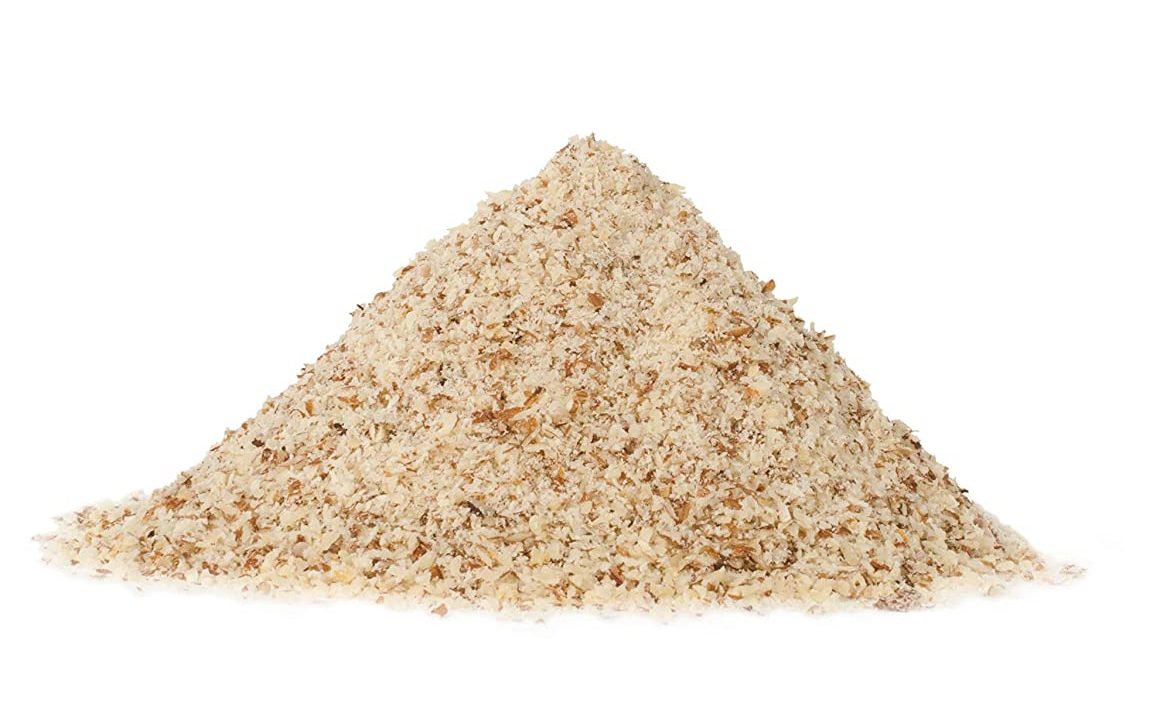
It is great for crumbly baked goods like pie crusts and cookies, but for cakes it is better to mix ½ cup hazelnut flour and ½ cup of wheat or cassava flour to 1 cup of almond flour.
Otherwise substitute it at a 1:1 ratio.
Pecan flour
Pecan flour is just as easy to work with as almond flour, but it has a slightly richer, stronger flavor.
It is also darker in color because the pecan nut skins are not removed before grinding.
It is recommended that you use this flour only when the color of the final baked product is not important. It also works well as a thickening agent.

I like to use pecan flour in waffles and cookies, for a robust and nutty flavor.
Pecan nut flour is not always easy to find, except in specialty stores. Substitution ratio is 1:1.
Affordable and easy alternatives to almond flour
If you have a recipe that asks for almond flour, and you are on a tight budget then consider one of the common kitchen staples as an alternative.
All-purpose flour
Ordinary all-purpose white flour can be used as a substitute for almond flour (just like you can use almond flour as a low-carb substitute for all-purpose flour).
But remember, all-purpose flour won’t offer the same nutty taste as almond flour.
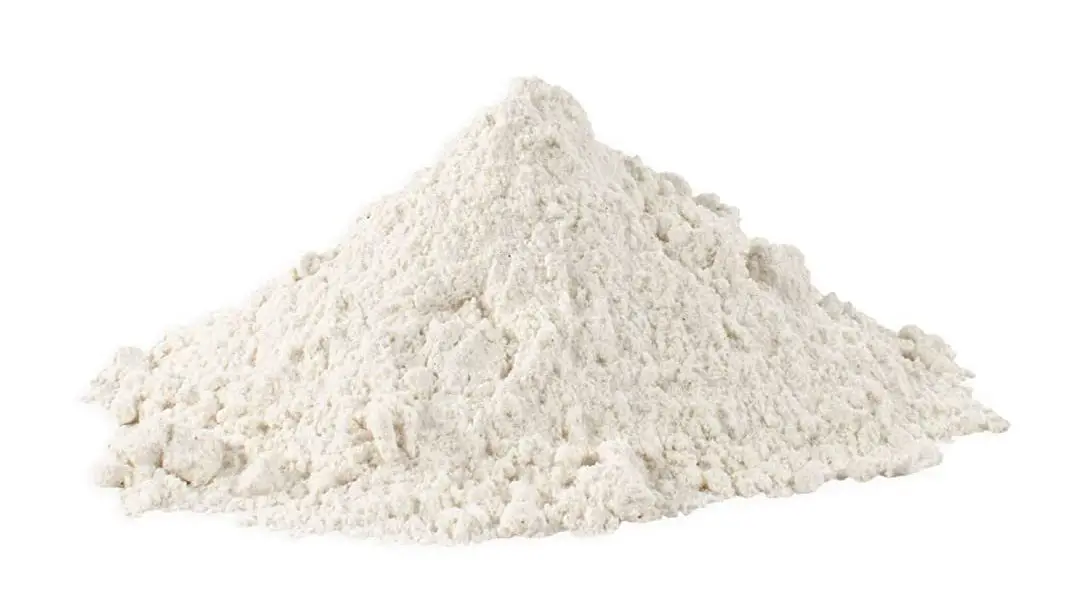
For wheat flours, the general rule is a 1:2 ratio of wheat flour to almond flour.
If a recipe asks for 2 cups of almond flour, you will need 1 cup of wheat flour.
Wheat flour is a better binding agent than almond flour, so you may need to adjust the recipe slightly and use one or two less eggs.
If you want to get the same taste that the almond flour provides, just cheat a little and add ¼ teaspoon of almond extract for every ¾ cup of flour.
Gluten-free white flour
For those on a gluten-free diet, gluten-free flour is another easy alternative to almond flour.
Gluten-free flour is made with a blend of ingredients – rice flour, milk powder, ground tapioca, potato starch and xanthan gum.
It is an easy and convenient swap for almond flour but, because it is a better binding agent than almond flour, you will need less of it in most recipes.
Check the packaging instructions for a recommended ratio swap.
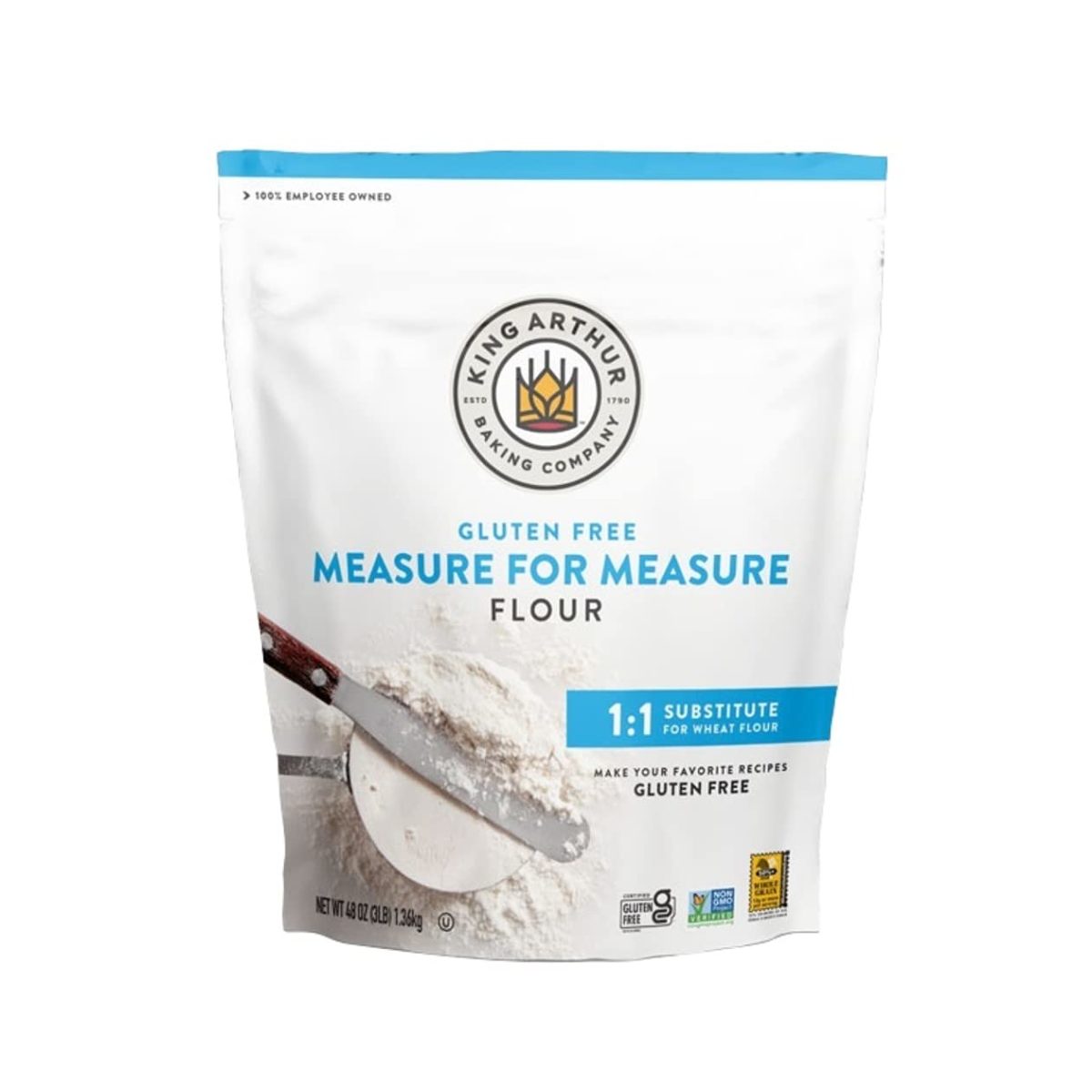
If there aren’t any recommendations, then a general rule of thumb is 1:2.
If a recipe asks for 2 cups of almond flour, you will need 1 cup of gluten-free white flour.
Have you been wondering what is flour in Japanese? I explain all the fascinating different names (komugiko, chûrikiko, hakurikiko) here
Not recommended: Don’t try to substitute these flours for almond flour
Finally, there are some flours that you better not use in replacement of almond flour. I’ll explain why not.
Coconut flour
Coconut flour is one of just a few flours that does not make a good substitute for almond flour.
This is because of how differently it behaves together with other ingredients.
So, unless you are prepared to change your recipe completely, I don’t recommend using coconut flour as an alternative to almond flour.
Coconut flour absorbs around five to eight times more liquid than almond flour, which means you will need to add a lot more liquid and perhaps additional eggs to the original recipe.
At a push, and if coconut flour is all you have on hand, it is recommended that you use ¼ cup of coconut flour for every cup of almond flour in your recipe, as well as an additional egg.
If it’s coconut flour you are missing for your recipe, check out the top 14 best substitutes for coconut flour here
Rice flour
Rice flour has a slightly sandy texture which can add an extra crumbly dimension to a recipe.
In very specific instances it can be used for baked goods like biscuits and shortbread. BUT, because rice flour is starchy, it absorbs liquid.
The absorbency and elasticity of rice flour will affect how it performs in recipes that use almond flour.
The flavor of the final product may also be affected since the mildness of white rice flour will make almond flour recipes taste blander.
It can be substituted on a ratio of 1:1 but it is not recommended.
Takeaway
As always, with substitution baking, the final product will not be exactly the same as the original, made with almond flour.
It may take a few tries and a few flops, but just enjoy experimenting with your recipes, fine-tuning them, until you get them to taste just the way you want them to.
Next, why not try using almond flour or any substitute for make delicous sweet (and savory!) Japanese pancakes!
Check out our new cookbook
Bitemybun's family recipes with complete meal planner and recipe guide.
Try it out for free with Kindle Unlimited:
Read for freeJoost Nusselder, the founder of Bite My Bun is a content marketer, dad and loves trying out new food with Japanese food at the heart of his passion, and together with his team he's been creating in-depth blog articles since 2016 to help loyal readers with recipes and cooking tips.

